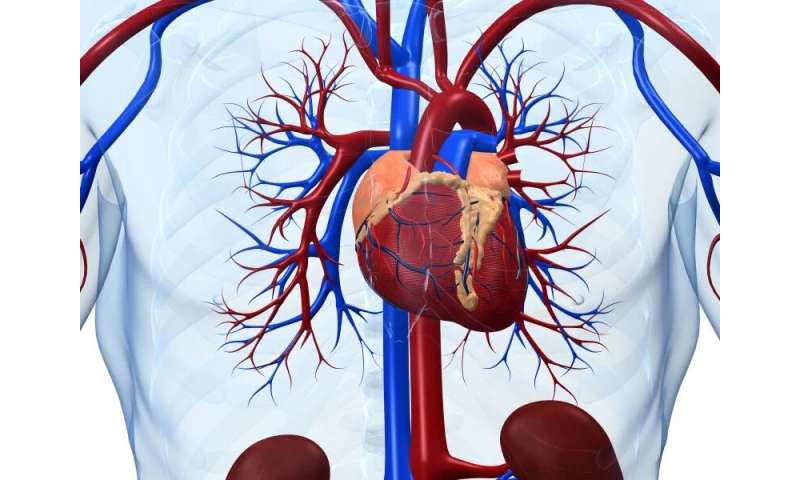
(HealthDay)—An infusion of serelaxin does not result in a lower incidence of death from cardiovascular causes or worsening of heart failure among patients hospitalized for acute heart failure, according to a study published in the Aug. 22 issue of the New England Journal of Medicine.
Marco Metra, M.D., from the University of Brescia in Italy, and colleagues conducted a multicenter trial involving 6,545 patients who were hospitalized for acute heart failure. In addition to standard care, participants were randomly assigned to receive a 48-hour intravenous infusion of serelaxin or placebo.
The researchers found that death from cardiovascular causes occurred in 8.7 and 8.9 percent of patients in the serelaxin and placebo groups, respectively, at day 180 (hazard ratio, 0.98; 95 percent confidence interval, 0.83 to 1.15; P = 0.77). Worsening heart failure occurred in 6.9 and 7.7 percent of the serelaxin and placebo groups, respectively, at day 5 (hazard ratio, 0.89; 95 percent confidence interval, 0.75 to 1.07; P = 0.19). The groups did not differ significantly in terms of incidence of death from any cause at 180 days, incidence of death from cardiovascular causes or rehospitalization for heart failure or renal failure at 180 days, or length of the index hospital stay.
“A focus on intensive outpatient care (rather than an obsession with inpatient therapy) is needed to reduce the burden of heart failure,” write the authors of an accompanying editorial.
Source: Read Full Article
